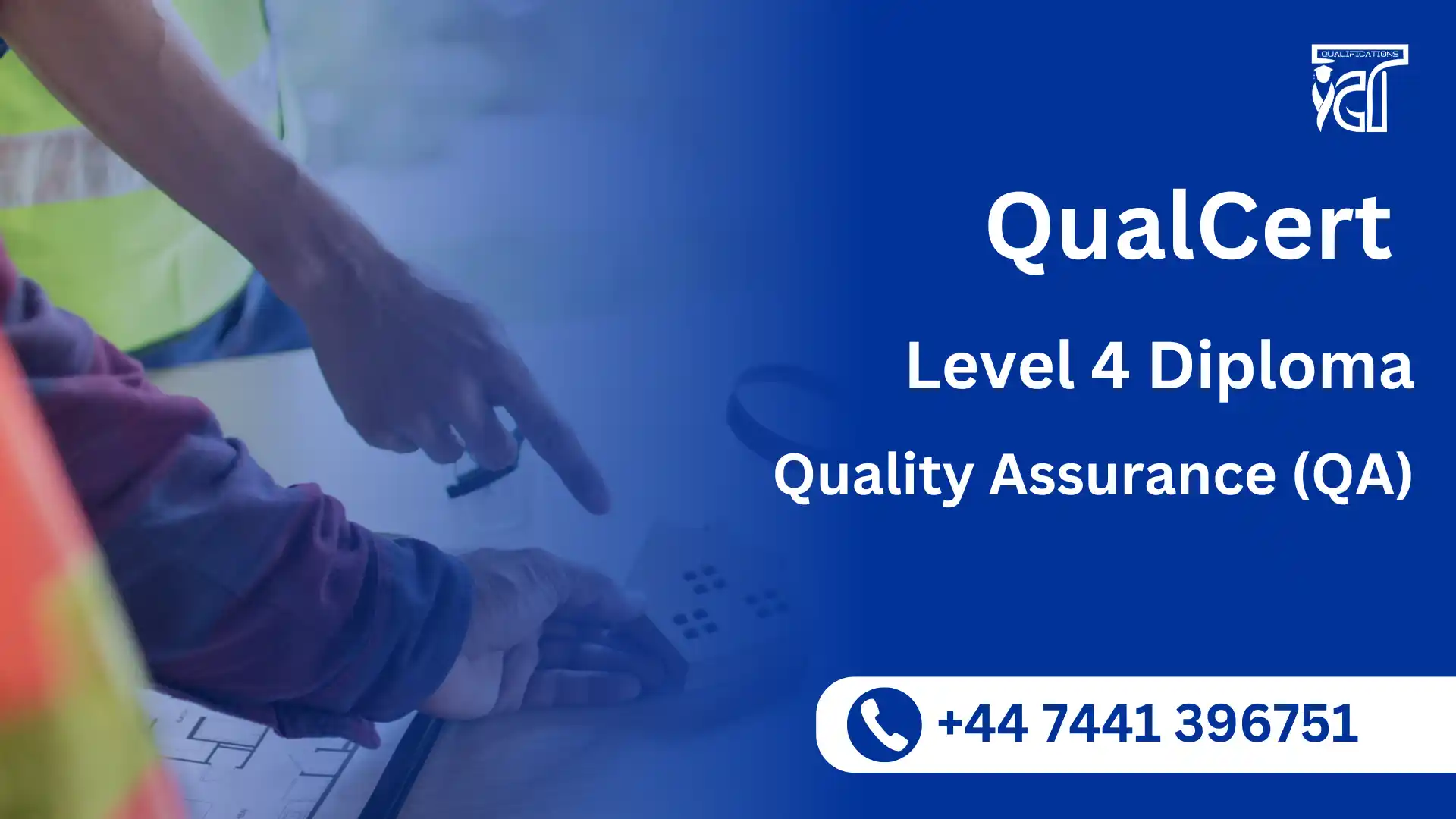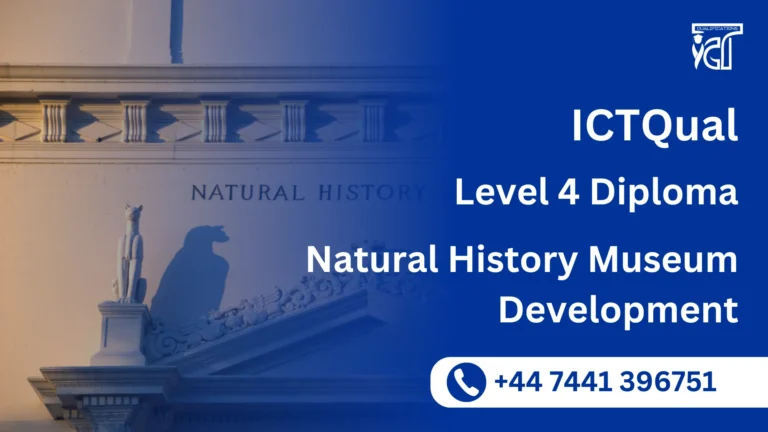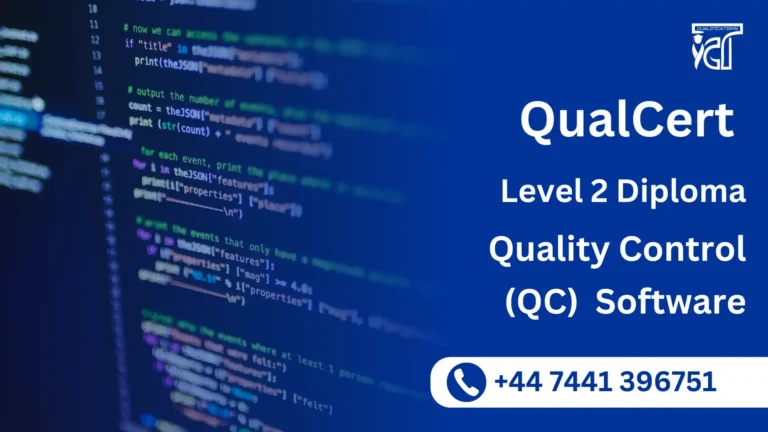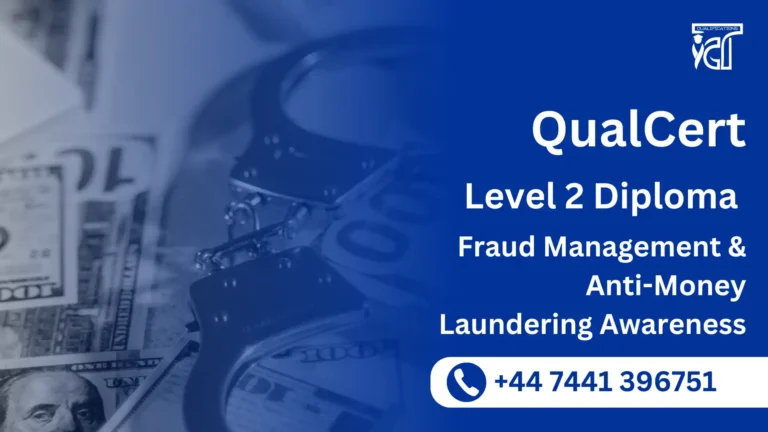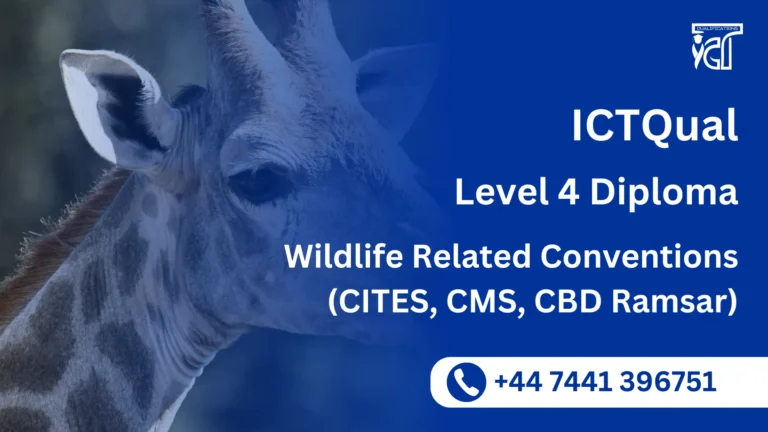The QualCert Level 4 Diploma in Quality Assurance (QA) is a foundational qualification designed for individuals seeking to develop essential knowledge and skills in quality assurance across a range of industries. This course introduces the core principles, tools, and processes required to implement and maintain effective quality systems, making it an ideal starting point for a career in QA.
In today’s quality-driven business environment, organizations are placing greater emphasis on delivering consistent products and services that meet customer expectations and regulatory standards. This diploma equips learners with the ability to understand quality frameworks, monitor compliance, identify process inefficiencies, and support quality improvement initiatives within their workplace.
The program covers key topics such as quality planning, inspection and testing methods, documentation, reporting, and the basics of internal auditing—laying the groundwork for more advanced study or career progression. Whether you’re a recent graduate, a technician, or a professional new to the QA field, this course offers a clear pathway into the world of quality management.
The QualCert Level 4 Diploma in Quality Assurance prepares learners for entry-level quality roles while providing a solid base for further professional development in quality control, auditing, and quality system management.
QualCert Level 4 Diploma in Quality Assurance (QA)
he QualCert Level 4 Diploma in Quality Assurance (QA) certification is designed to provide a structured and comprehensive framework for developing expertise in quality assurance. Below is the qualification structure, including the Total Qualification Time (TQT) 450, Guided Learning Hours (GLH) 270, and 72 Credits associated with the program.
| Unit Ref# | Unit Title | Credit | GLH | TQT |
| QC07011 – 1 | Introduction to Quality Management | 12 | 45 | 75 |
| QC07011 – 2 | Quality Control Tools | 12 | 45 | 75 |
| QC07011 – 3 | Quality Auditing Principles | 12 | 45 | 75 |
| QC07011 – 4 | Documentation and Reporting in QA | 12 | 45 | 75 |
| QC07011 – 5 | Statistical Methods in QA | 12 | 45 | 75 |
| QC07011 – 6 | Teamwork and Collaboration in QA | 12 | 45 | 75 |
GLH (Guided Learning Hours) and TQT (Total Qualification Time) are terms commonly used in vocational qualifications to help define the amount of time a learner is expected to spend on their studies.
1. GLH (Guided Learning Hours)
GLH refers to the number of hours a learner spends being directly taught, supervised, or supported during their course. This includes the time spent in activities such as:
- Classroom instruction
- Practical workshops
- One-on-one tutoring or mentoring sessions
- Online learning sessions with tutor support
In other words, GLH represents the time that learners are actively engaged with their instructors or learning activities.
2. TQT (Total Qualification Time)
TQT represents the total amount of time a learner is expected to invest in completing a qualification, including:
- GLH (Guided Learning Hours): Time spent on direct learning, as explained above.
- Self-Directed Learning: This includes time spent on independent study, research, assignment completion, preparation for exams, and any other work the learner does outside of direct teaching hours.
TQT is a broader measure that includes all the time required to achieve the qualification. It helps learners and employers understand the overall commitment required for the qualification.
Key Differences Between GLH and TQT:
- GLH focuses on direct learning with guidance or supervision.
- TQT includes GLH as well as independent study time and other learning-related activities.
Example:
If a qualification has a TQT of 600 hours and a GLH of 250 hours, it means the learner should spend 250 hours in direct learning (classroom, online, or tutor-led sessions) and 350 hours on independent study or research.
Upon successful completion of this diploma, learners will acquire essential knowledge and practical skills to support quality assurance functions within diverse organizational settings.
1. Foundations of Quality Management
- Develop a solid understanding of the key concepts, principles, and philosophies that underpin quality management.
- Explore the importance of quality as a strategic component of business operations.
- Evaluate various quality management models and frameworks, including ISO 9001, and their application in different industries.
- Recognize the role of quality in achieving organizational effectiveness and customer satisfaction.
2. Application of Quality Control Tools
- Identify and utilize standard quality control tools to manage and improve operational processes.
- Gain proficiency in tools such as Pareto charts, flowcharts, fishbone (Ishikawa) diagrams, and control charts.
- Analyze and interpret data to identify root causes of quality issues and implement appropriate corrective actions.
- Enhance decision-making through data-driven quality assessments.
3. Principles of Quality Auditing
- Understand the methodologies and principles involved in quality auditing.
- Learn to plan, execute, and report on both internal and external audits.
- Assess compliance with established quality standards and regulatory requirements.
- Identify non-conformities and recommend improvements based on audit outcomes.
4. Quality Documentation and Reporting
- Understand the critical role of documentation in supporting quality assurance systems.
- Learn how to prepare accurate and effective QA reports, including inspection records and audit summaries.
- Develop skills in maintaining clear, traceable, and accountable documentation for quality processes.
- Ensure transparency and consistency in quality management through structured reporting practices.
5. Statistical Techniques in Quality Assurance
- Gain foundational knowledge of statistical methods used in analyzing quality performance.
- Apply techniques such as sampling, hypothesis testing, and regression analysis in QA contexts.
- Learn to interpret statistical data to support evidence-based decision-making.
- Understand the connection between statistical analysis and ongoing quality improvement efforts.
6. Teamwork and Communication in QA
- Recognize the importance of collaboration in achieving quality assurance goals.
- Learn to work effectively within cross-functional teams to implement quality initiatives.
- Develop strong communication skills essential for a quality-focused work environment.
- Coordinate with internal and external stakeholders to uphold and improve quality standards.
The QualCert Level 4 Diploma in Quality Assurance (QA) offers a range of valuable benefits for individuals looking to enter or grow within the quality assurance profession. Whether you’re just beginning your QA journey or aiming to formalize existing experience, this course provides the tools, knowledge, and credentials needed for success.
1. Recognized Entry-Level Qualification
Obtain a globally respected diploma that demonstrates your foundational competence in quality assurance principles, practices, and tools.
2. Career Development Opportunities
Qualify for roles such as QA Assistant, Quality Inspector, Production Quality Monitor, or Audit Support Officer across industries including manufacturing, healthcare, logistics, and engineering.
3. Essential QA Skills
Learn practical skills in auditing, documentation, quality control tools, and data analysis that can be directly applied in real-world QA environments.
4. Foundation for Advanced Study
Provides a strong platform for progressing to higher-level qualifications, such as the Level 5 or Level 6 Diploma in Quality Assurance, or specialized certifications like ISO 9001 Internal Auditor or Lean Six Sigma.
5. Multi-Industry Relevance
Gain knowledge and skills applicable across a wide range of sectors, making your career more flexible and adaptable to changing job markets.
6. Increased Employability
Enhance your resume with a practical and industry-relevant qualification, making you a more competitive candidate for QA roles and internships.
7. Support Organizational Quality Goals
Become an active contributor to your organization’s quality objectives by helping maintain standards, reduce errors, and support continuous improvement efforts.
8. Confidence in Quality Practices
Develop the confidence to work within quality systems, participate in audits, support compliance processes, and communicate effectively with teams and stakeholders.
This diploma is ideal for learners who want a structured, practical entry into the quality profession and aspire to build a strong foundation for long-term career growth in quality assurance and compliance.
The QualCert Level 4 Diploma in Quality Assurance (QA) is tailored for individuals who are either entering the quality field or looking to build a strong foundational understanding of quality assurance principles and practices. The ideal learner for this course includes:
1. Entry-Level Quality Professionals
Individuals starting their careers in quality assurance or quality control who need a solid grounding in QA systems, tools, and procedures.
2. Production and Operations Staff
Team members involved in manufacturing, production, or service delivery who want to enhance their understanding of quality processes and contribute to consistent standards.
3. Technical and Vocational Graduates
Graduates of engineering, technical, or vocational programs seeking a focused qualification to enter the quality management profession.
4. Career Switchers
Professionals from other fields who want to transition into quality assurance and need a recognized qualification to gain industry-relevant knowledge.
5. Supervisors and Junior Managers
Individuals in supervisory roles who are responsible for maintaining quality on the shop floor or in service environments and want to formalize their experience with academic training.
6. Support Staff in QA/QC Departments
Administrative or support personnel in quality departments who want to expand their technical understanding and contribute more effectively to QA tasks.
7. Small Business Owners and Entrepreneurs
Entrepreneurs who wish to implement quality systems within their operations to improve efficiency, compliance, and customer satisfaction.
This course is ideal for motivated, detail-oriented individuals who are committed to improving product and service quality and building a long-term career in the field of quality assurance.
Entry Requirements
Register Now
Qualification Process
Qualification Process for the QualCert Level 4 Diploma in Quality Assurance (QA)
- Self-Assessment:
Begin by evaluating your eligibility to ensure you meet the qualification requirements, including work experience, knowledge, and language proficiency. - Registration:
Complete your registration by submitting the required documents, including a scanned copy of a valid ID, and paying the registration fee. - Induction:
An assessor will conduct an induction to confirm your eligibility for the course and explain the evidence requirements. If you do not meet the criteria, your registration will be canceled, and the fee will be refunded. - Assignmnets & Evidence Submission:
Provide all assignmnets and the necessary evidence based on the assessment criteria outlined in the course. If you are unsure of the required evidence, consult with the assessor for guidance on the type and nature of evidence needed. - Feedback and Revision:
The assessor will review your submitted evidence and provide feedback. Evidence that meets the criteria will be marked as “Criteria Met,” while any gaps will be identified. You will be asked to revise and resubmit if needed. - Competence Evidence:
Submit final evidence demonstrating that all learning outcomes have been met. This evidence will be marked as “Criteria Met” by the assessor once it is satisfactory. - Internal Quality Assurance (IQA):
The Internal Quality Assurance Verifier (IQA) will review your evidence to ensure consistency, quality, and compliance with standards. - External Verification:
The IQA will submit your portfolio to QualCert External Quality Assurance Verifiers (EQA) for final confirmation. The EQA may contact you directly to verify the authenticity of your evidence. - Certification:
Upon successful completion of all checks, QualCert will issue your official certificate, confirming that you have attained the QualCert Level 4 Diploma in Quality Assurance (QA).

